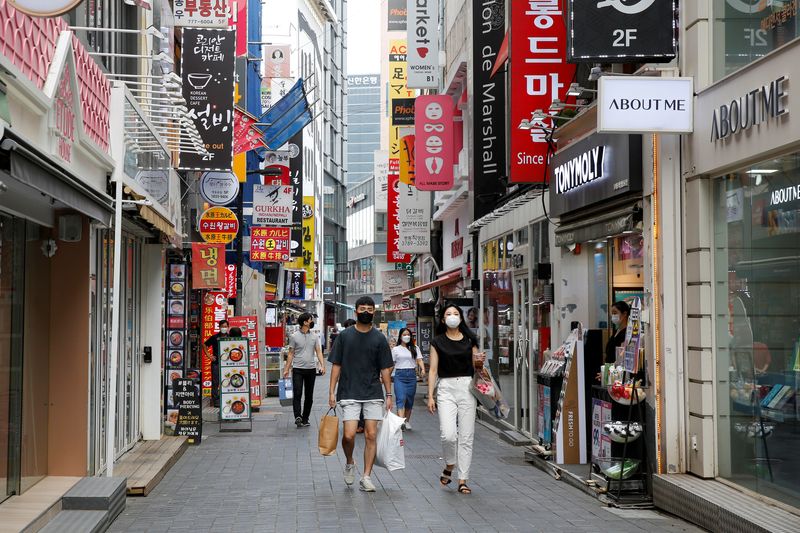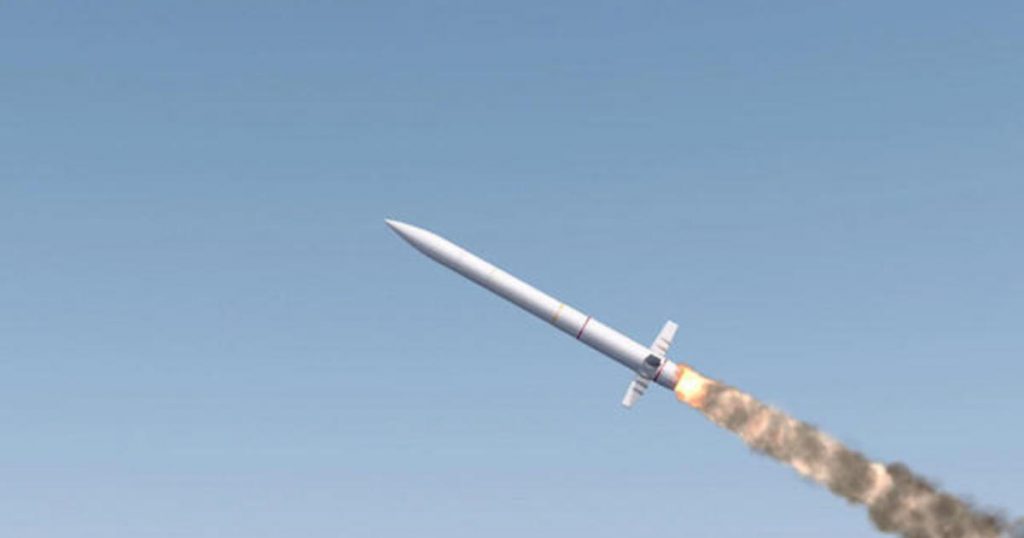
People wearing masks walk at Myeongdong shopping district, as social distancing measures were introduced to avoid the spread of the coronavirus disease (COVID-19), in Seoul, South Korea, August 19, 2020. REUTERS/Heo Ran
March 4, 2022
By Joori Roh
SEOUL (Reuters) – South Korea’s consumer inflation hovered near a decade high in February and stood above the central bank’s 2% target for an 11th month, adding pressure on policymakers to raise interest rates amid surging oil prices due to the Russia-Ukraine crisis.
The consumer price index (CPI) for February rose 3.7% from a year earlier, government data showed on Friday, exceeding a 3.5% gain tipped in a Reuters survey and a notch below the decade high of 3.8% marked in November. It rose 3.6% in January.
The breakdown of data showed the cost of petroleum surged 19.4%, while that of housing rentals and outdoor dining increased 2.1% and 6.2%, respectively, year on year.
“Price instability will likely continue on persistent rise in energy prices and industrial goods,” said Park Sang-hyun, an economist at Hi Investment & Securities.
“Future development of the Ukraine crisis and its impact on oil prices will play a major role in inflation,” he said.
Core inflation, which excludes volatile food and energy costs, jumped 2.9% from a year earlier, the fastest since June 2009, in a sign that surging prices of fuel and other raw materials have fed through to higher costs for goods and services.
That puts the Bank of Korea’s (BOK) monetary policy board under pressure to raise the base rate further in coming months, following the back-to-back rate hikes in November and January. The BOK held the base rate at 1.25% at its February meeting.
In late February, the BOK also sharply increased its inflation forecast for this year to 3.1% from 2.0%. It sees next year inflation at 2.0%.
Separately on Friday, Finance Minister Hong Nam-ki said the country will extend the 20% tax cut in oil products by three months to minimise the impact of surging energy prices, pushed up by the Russia-Ukraine crisis.
“Korea’s government reduced the fuel tax last year to ease price pressure, however, its impact was offset by a faster increase in oil prices. CPI would have been much higher in the absence of price controls, in our view,” Park Chong-hoon, economist at Standard Chartered Bank Korea, said.
(Reporting by Joori Roh; Editing by Leslie Adler, Stephen Coates and Cynthia Osterman)

